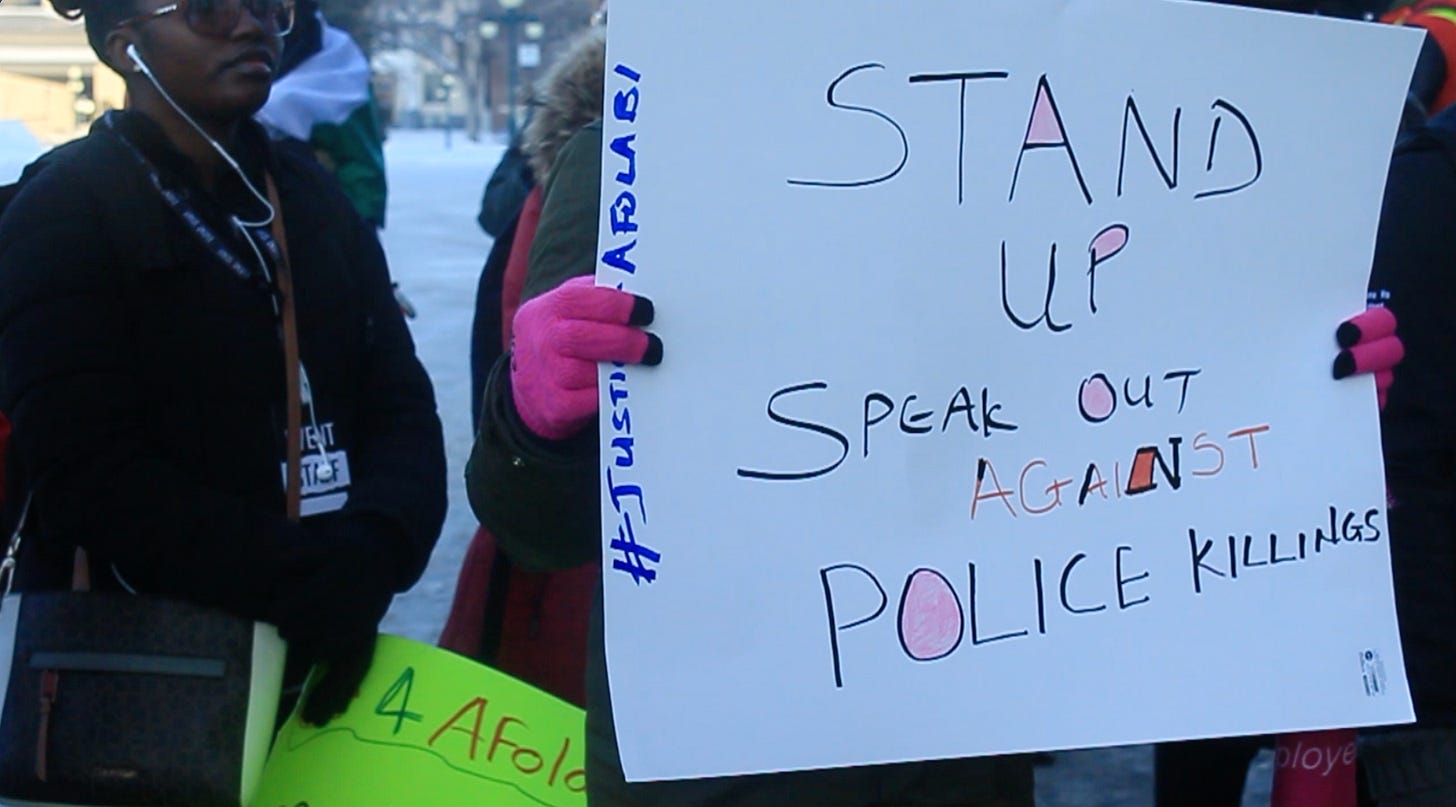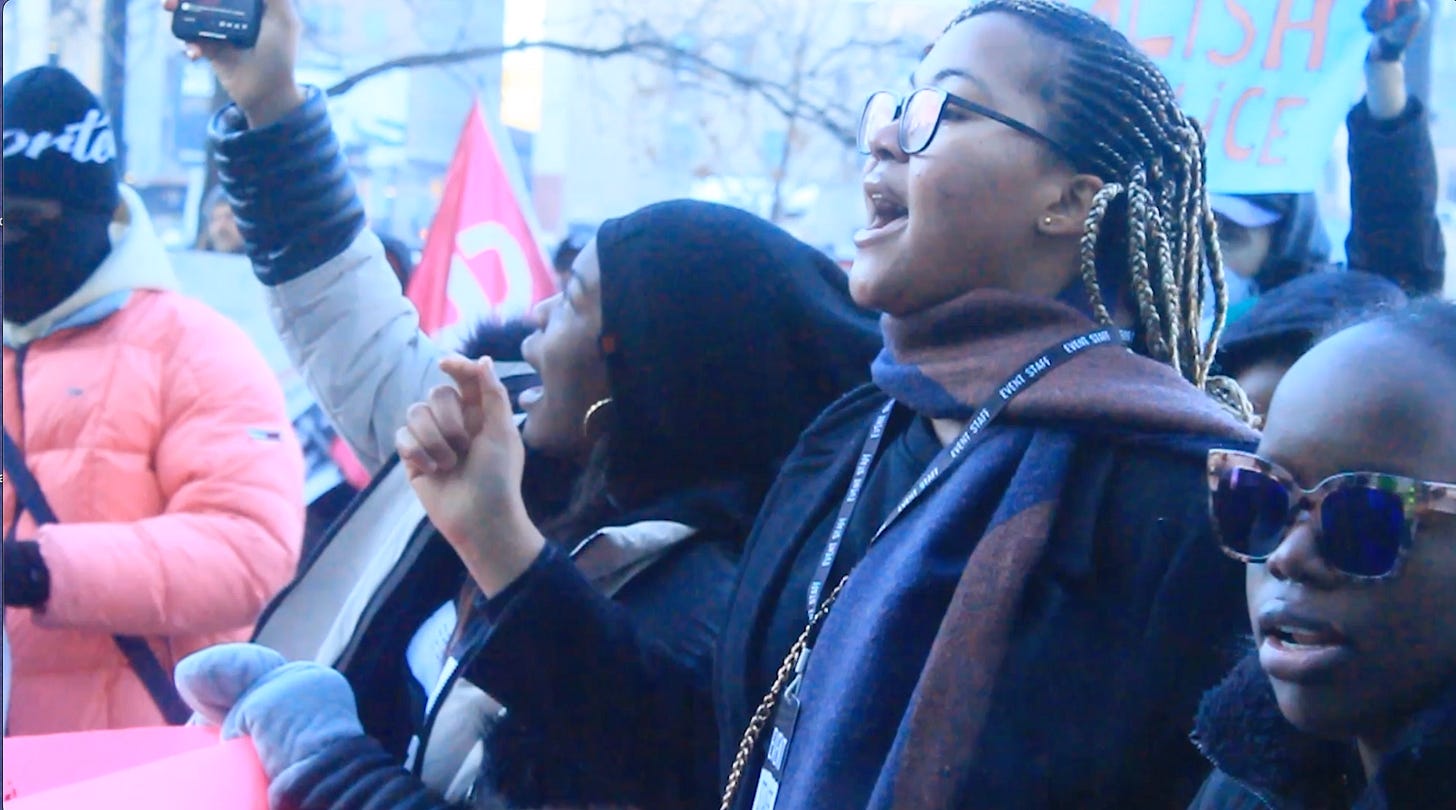No justice, no peace: Winnipeg rallies for Afolabi Opaso and safety for all
“Mental health is not a crime, being black is not a crime.”

It’s been over a month since the shooting of a 19-year-old international student from Nigeria.
Olivia Onyemaenu remembers Opaso, whom she called Zigi Pink, as a fun character who loved to dance.
“I met Zigi a year ago when he first moved to Winnipeg for school. I didn’t like him at first because I thought he was loud and silly,” she says. “But over time our friendship grew, he was a really fun person.”
Afolabi Opaso was allegedly experiencing a mental health crisis when the tragic incident unfolded on December 31, 2023. According to police, they were called to Opaso's apartment on University Crescent for a wellness check.
Upon their arrival, Opaso was reportedly armed, leading to a confrontation during which he was shot by an officer.
Opaso had moved to Winnipeg only a year ago from Nigeria for school.
Onyemaenu says it’s scary to think this all happened so close to home. “So many other students live in those apartments. The whole matter should’ve been resolved peacefully,” she says.
Siobhan Bganya, a resident of the same building as Opaso says she feels unsafe knowing this happened in her building. “As a black international student myself, I can’t even begin to imagine the pain Opaso’s family is feeling,” she said.
“Our parents sent us here for a better life not to die,” said Bganya.
Rallying for justice
On Saturday at least 100 people attended a march and rally for Opaso, including Onyemaenu and many more of his friends. People from the Nigeran, African, and Palestinian communities joined the march in solidarity.
Among the protesters was Jean-René Dominique Kwilu, the lawyer for Opaso’s family. Kwilu says people who were in the apartment called the police and said Opaso was having a crisis but was not a threat to anyone.
Kwilu, who co-organized Saturday’s march, said the situation affects a lot of international students. “They’re fearful in terms of security, students around campus of just what took place, what happened,” he said.
Kwilu says the march isn’t just about Opaso but safety for all especially BIPOC communities.

“Afolabi’s life mattered,” said Vera Keyede, the president of the Nigerian Association of Manitoba. Keyede says it always makes her angry hearing about the death of another black man.
“The police should’ve de-escalated the situation, there was no need for him to lose his life. He was having a mental break and only needed help,” she says.
“Our demands are simple; we want justice, we want to see better police reforms when dealing with mental health situations, and we want a thorough investigation into what happened.”
Onyemaenu says she won’t stop protesting until they get answers. “I want (police) them to know we are serious and we arent backing down,” she said.
“We want answers, we want to know what happened. We need justice.”



